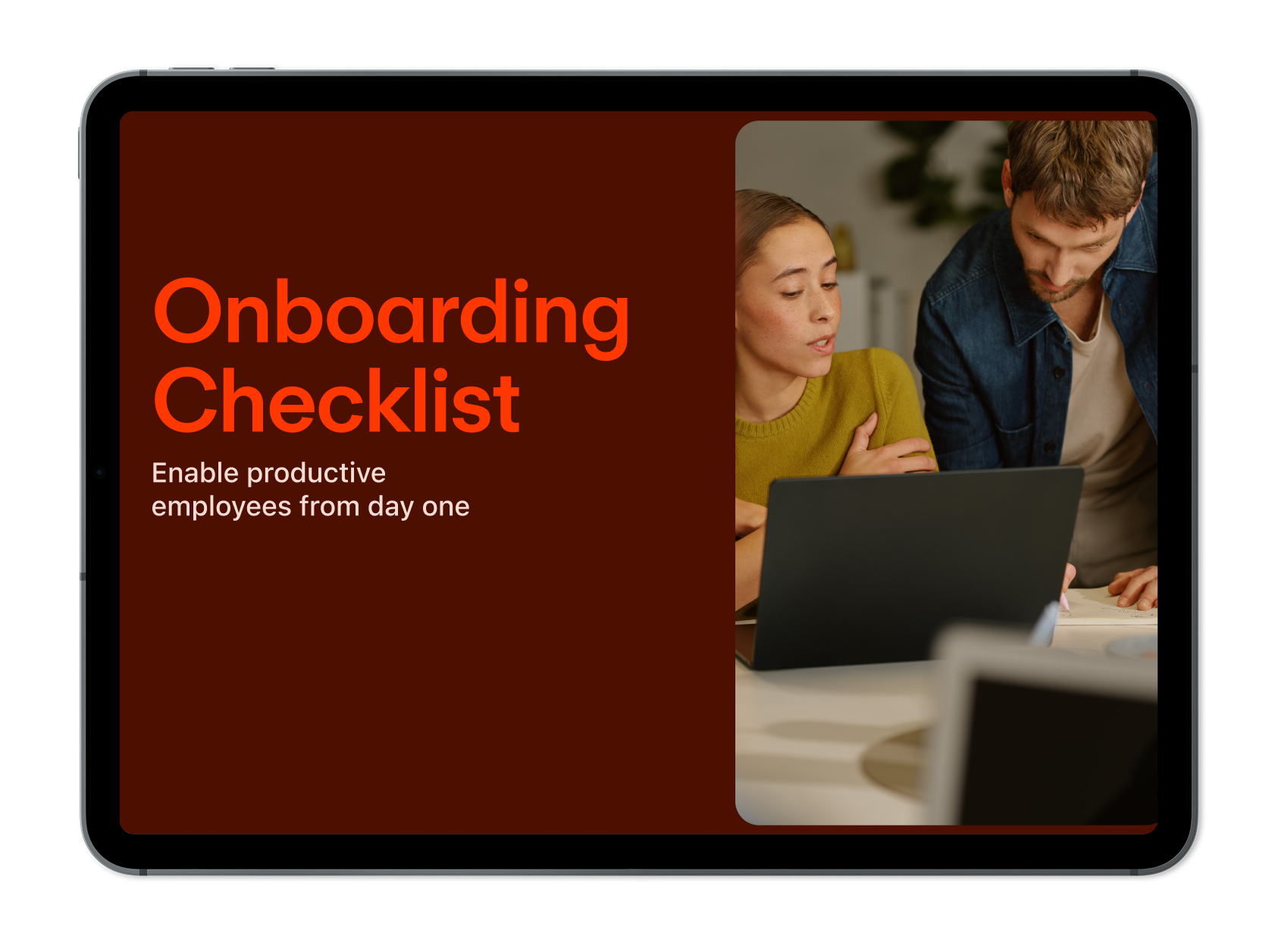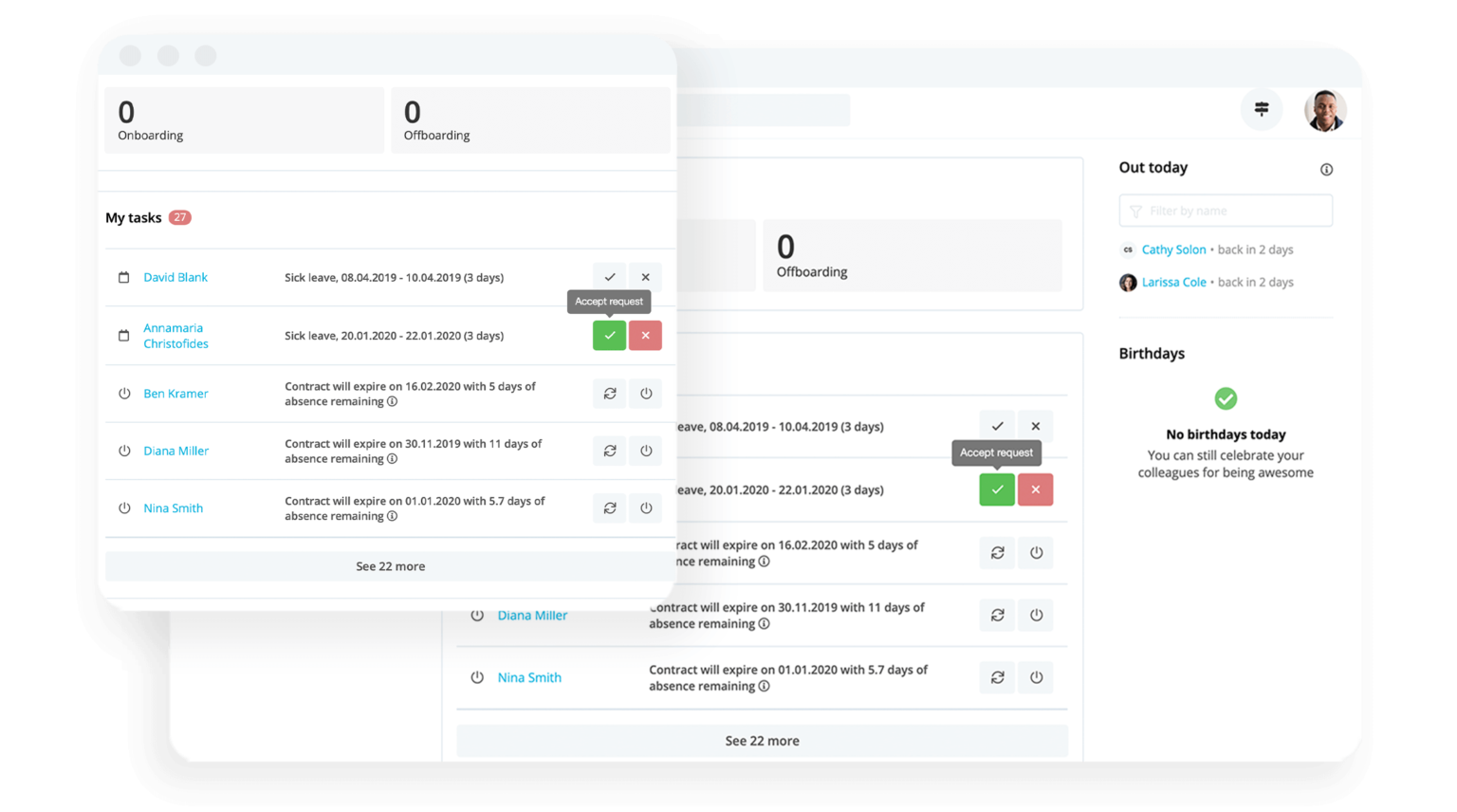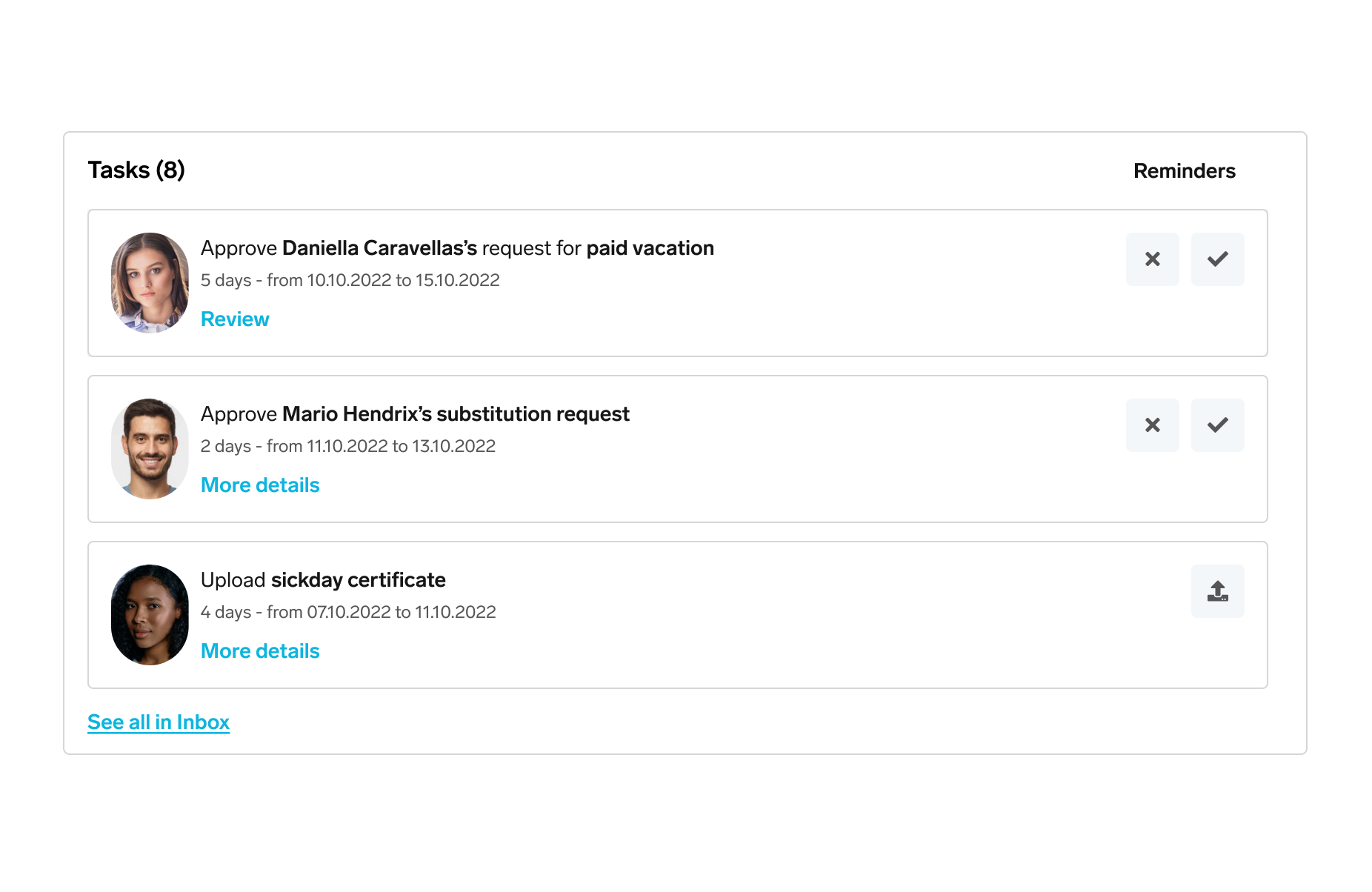What Does HR Do: HR Roles & Responsibilities

What does HR do in an organisation? Frankly, there's a long list of tasks and projects, led by HR, that all contribute to keeping an organisation running.
Below is a comprehensive guide to those obligations and an explanation of how they affect an HR professional's day-to-day work.
Key Facts
An HR department structure is designed mainly to keep employees satisfied with their workplace, an objective that is achieved through multiple tasks and methods.
HR personnel are responsible for several workforce-related procedures including but not limited to recruitment, compensation and mediating disputes.
Supporting employees helps keep them engaged with their work and motivated to produce the best results possible.
What is the HR department?
An HR department is responsible for people management. As an HR professional, you’re responsible for overseeing the employee lifecycle, including the hiring process, training and development, disciplinary actions and offboarding.
What does HR do?
Quite frankly, a lot of things! Your HR department is going to be in charge of the entire employee lifecycle, as well as maintaining high levels of engagement, performance, productivity and more. In short, HR keeps your business working well.
13 key responsibilities of HR
Human resources professionals have many important responsibilities to attend to day to day, some of which are obvious and others are less stated…
1. Attracting Talent
The HR department is usually in charge of creating and enacting the company’s recruitment policy. More specifically, they oversee the process that fills empty positions with qualified candidates who fit into the company culture.
The process of finding top talent involves posting clear and accurate job descriptions, screening those in the candidate pool and interviewing those who make it through the screening process.
Overseeing the recruitment process helps your company create a strong, effective workforce.
2. Hiring Employees
Related to the recruitment process is the hiring process, where human resources professionals evaluate candidates to find top talent.
Generally, they are the ones who set the prerequisites that someone needs to meet to be considered for the role.
HR looks at everything from their level of education to the relevance of their skills to how well their personality would fit into the company culture.
3. Enforcing disciplinary actions
If a code of conduct is broken, HR steps in to see through any consequences for these actions.
Usually, they follow a set disciplinary process: first issuing a verbal warning to try and correct the behaviour, then a written warning and then a suspension or termination if warranted.
4. Writing and issuing policy updates
The HR department continually updates workforce policies to ensure they’re in line with changing procedures, trends in the workplace and changes to the law.
Since HR is on the pulse of these changes, they can identify what needs to be updated and then disseminate the policy so employees know about it.
Travel policy, employee dress code and work-from-home policies are among several examples of the types of policy updates HR works on.
5. Managing payroll
As the department responsible for payroll administration, HR manages all aspects of getting paid, from managing paperwork to issuing checks.
Paying your workforce can get particularly complicated when factoring in potential bonuses or reimbursements.
However, software is available that takes care of a large portion of the typical accounting process and gives your HR team more time to focus on other responsibilities.
6. Maintaining employee records
One of the most important responsibilities of the HR team is keeping track of employee documentation.
That paperwork often contains important personal information related to pay schemes, health insurance, benefits enrollment and more. This information may be required to keep on file for a certain period.
7. Analysing employee benefits
Human Resources is responsible for routinely analysing company benefits. This analysis includes looking for the right benefits providers, assessing which benefits are used and which need tuning, getting employee feedback on their satisfaction with benefits and reviewing new benefits to include that keep the company competitive.
8. Fostering career development
An engaged employee with a path to advancement is a happy employee. HR is often tasked with looking out for and planning advancement opportunities, training and other ways to invest in the company workforce.
9. Onboarding new employees effectively
A solid onboarding programme ensures new hires can start on the right foot when they walk through the door. Generally, HR representatives set up that process to track the new employee’s paperwork, give them copies of relevant company policies and get them all equipment and access they need, such as a company laptop or a keycard.
Additionally, they’ll provide new hires with resources to help them learn their position quickly.
Checklist: Step-by-Step to a Smoother Onboarding

Ensure great performance from day one. Download our onboarding checklist for a step-by-step guide to a perfect start.
Download The Checklist Here10. Carrying out offboarding successfully
Just as they’re responsible for onboarding new employees, the HR department also takes care of employees who are leaving an organisation.
The typical steps include collecting company equipment, deactivating employee passwords and temporarily transferring the departing employee’s responsibilities to colleagues. Another important step is to conduct an exit interview to get the employee’s feedback and figure out why they’re leaving.
They will also unenroll the employee from any benefits and check that all local laws are adhered to while offboarding.
11. Maintaining a healthy workplace culture
Since the HR department is so attuned to the workforce, they’re in the optimal position to effect and maintain workplace culture.
They can hire people who best fit company values and continue to encourage work culture development among staff. Additionally, they’re often instrumental in deciding what that culture will be and can help adjust it over time as employee values shift.
Usually, HR representatives will foster a comprehensive system of collaboration and feedback between managers and employees to move the company in a positive direction.
12. Resolving conflicts
Hearing and settling employee disputes is critical for maintaining a cooperative work environment. The HR department can step in and serve to settle disputes and help employees work through complicated issues.
This step-by-step process sees a representative attempt to de-escalate the situation, hear both sides and eventually seek a compromise.
The company risks losing good employees or damaging employee morale without a method for resolving these issues, making this one of the more underrated roles HR serves.
13. Sharing information
Most important company updates come through the HR department, and they’re responsible for spreading relevant information to employees.
This transparency shows employees that HR is here to support them in their everyday role and as they pursue professional advancement in the workplace. Policy changes, new benefits and training programme announcements are only a few examples of the information HR distributes to the workforce.
How new information is shared is HR’s responsibility, too: They may opt to post something in the break room, send an email or hold a lunch hour to discuss new policies.
The primary functions of HR
While each HR department is tailored to the needs of a company, many of the main functions of an HR department are universal. Some of these functions include:
Talent management. This involves the recruitment and development of candidates that fit into the company culture and are unlikely to leave.
Strategic planning. This involves human resources management’s advanced planning to minimise risks and maximise opportunities for the business.
Compensation and benefits. This involves running pay schemes and benefits programmes for all employees.
HR compliance. This important responsibility ensures company policies comply with labour laws and stay up to date as they change.
Training and development. This supports employees by filling skill gaps, giving them professional goals to reach for and providing training programmes and other resources to utilise.
Employee and labour relations. This function serves as a way to mediate fair solutions to employee disputes to maintain as collaborative a workforce as possible.
Workplace safety. This verifies that the workplace follows all applicable health and safety regulations.
What does HR do: Frequently asked questions
What are the main functions of HR?
The 7 main functions of the HR department are:
Hiring the best talent
Minimising risks and maximising return regarding people management
Ensuring that employees are compensated fairly and on time
Creating and revising company policies to comply with the law
Training employees so they can grow as professionals
Making sure the workplace is safe for employees
Following workplace trends and implementing new programmes as needed
What is the most important role of HR?
Managing people is the most important role of HR, ensuring that employee concerns are addressed and keeping them satisfied with the workplace.
How does HR support employees?
HR supports employees by confirming they’re paid fairly, giving them opportunities for professional growth, settling their disputes and more.
Help your HR team do more and better
There are many aspects that influence a company’s long-term success, but it’s safe to say that the most important one is its employees. Help your HR team take tasks off your plate, so they can gain back time to focus on your people.
Speak with an HR expert today to find out how Personio can help. Our all-in-one HR software solution can upgrade your people operations, so you can focus on the roles and responsibilities that really drive impact for your organisation.

